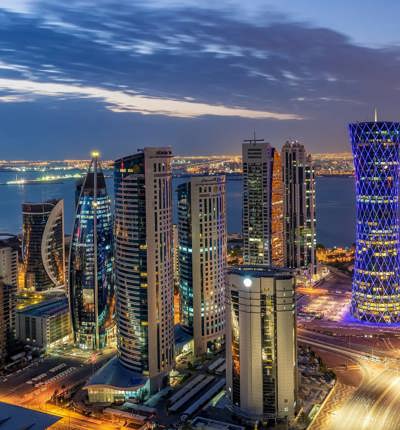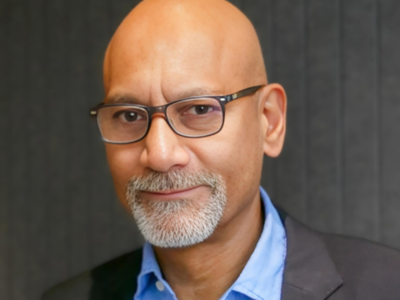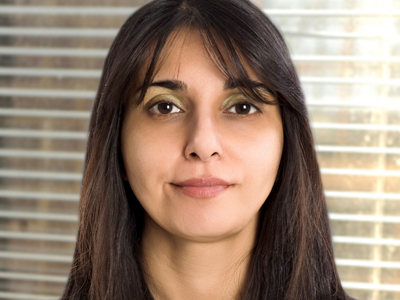
2022 World Cup: lip service to human rights in Qatar
Sarah Gibbons, Richard Meeran and Harminder Bains discuss the many criticisms of the World Cup host state of Qatar in the context of the UN Guiding Principles on Business and Human Rights and the lack of significant action to affect meaningful change in the host state.
Posted on 17 November 2022
Controversy has surrounded Qatar’s hosting of the 2022 Men’s World Cup ever since they were successful in their bid in December 2010. The Gulf state has a poor human rights record stretching back many years, in particular in its treatment of women and LGBTQ+ people. The latter having received particular media attention regarding concerns over the security of LGBTQ+ fans whilst in Qatar.
These make for convincing arguments as to why Qatar should never have been awarded the hosting bid. Yet if a clean human rights record is to be a criterion for a host nation, there are arguably few states that appear to fit the bill.
While recognising that the state of human rights protection in Qatar is indeed poor, and the criticism is not unwarranted, there is a need to acknowledge some hypocrisy in the focus on Qatar. The sense of moral superiority among Western observers has not gone entirely unnoticed. The UK, for example, has entered into an agreement to receive millions of pounds from Qatar to expand a major gas terminal in Wales in an attempt to move away from Russian gas supplies. BAE Systems, with the imprimatur of the UK government, has supplied planes and ammunitions used by the Saudi government in the bombing of civilians in Yemen. BrewDog, whilst donating profits from one of its lagers to human rights causes, and launching a huge ad campaign labelling itself as the World Cup “anti-sponsor”, will nevertheless continue to show the matches in its pubs and is reported to supply its beer, through a distributor, to Qatar.
It bears repeating that recognising the great importance in tackling human rights abuses wherever they occur is not a reason for ignoring human rights abuses in Qatar. With such a poor human rights record, it is not surprising that there were calls for the vote to be rerun, on top of the criticisms relating to corruption that too caused calls for their award to be withdrawn.
Nevertheless, Qatar will host the 2022 Men’s World Cup. They will welcome 800,000 ticket holders to the seven newly constructed stadiums and an estimated 5 billion people will tune in to the 64 games. Qatar must also contend with the applicability of the United Nations Guiding Principles on Business and Human Rights in its hosting. It is through this global framework that the below discussion is framed, with a particular focus on the abuse of migrant workers who have been directly involved in the World Cup preparations.
The UNGPs
The UN Guiding Principles on Business and Human Rights (UNGPs) are a global standard on business and human rights, which set the expectations for human rights protection arising from business activities. They apply to all states and businesses worldwide and are built on the three-pillar “Protect, Respect and Remedy” framework:
I the state’s Duty to Protect from human rights abuses.
II the responsibilities of business enterprises to Respect human rights, to avoid people’s human rights being harmed through their activities or business relationships, and to address harms that do occur.
III access to effective remedy where individuals’ human rights are harmed.
These international human rights obligations relating to the staging of the World Cup, apply not just to Qatar but to businesses involved in the organisation and construction of the tournament and its facilities, and to businesses, including investors, that have business relationships with those businesses that are directly involved.
Migrant workers in Qatar
Migrant workers’ rights have been an issue well before Qatar won its bid to host the 2022 Men’s World Cup. The kafala system, which until 2021 legally bound each labour migrant to their Qatari employer has existed since the 1970s. However, in the preparation and delivery of the games, migrant labourers have been subject to atrocious conditions, including forced labour, restrictions on freedom of movement and discrimination. Inhuman and degrading working and living conditions have resulted in the deaths of thousands of migrant workers involved in constructing the World Cup stadiums and infrastructure. Death certificates of these workers, who have died after working in prolonged intense heat have mainly ascribed the cause of death to natural causes and most deaths have gone uncompensated or inadequately compensated.
Duty to Respect human rights
In the context of the World Cup, the UNGP’s apply to Qatar, to FIFA, and to all businesses involved in the myriad activities required to deliver the tournament.
In June 2014, Mary Robinson, former President of Ireland and former United Nations High Commissioner for Human Rights, and John Ruggie, Former UN Special Representative of Business and Human Rights, sent an open letter to then FIFA President Sepp Blatter. It recommended that FIFA make an explicit commitment to respect human rights and establish a strategy for integrating a human rights approach based on the UNGPs into their governing body’s operating procedures. In 2016, FIFA incorporated a new provision entitled ‘Human rights’ into its FIFA Statutes, outlining its commitment to respecting all internationally recognised human rights and promotion of the protection of these rights.
Despite these commitments, FIFA did not carry out human rights due diligence over the abusive kafala labour sponsorship system in Qatar, or the prohibitions that keep workers from forming unions or striking, and awarded the tournament to Qatar. Having done so, FIFA was obliged, under the UNGPS, to identify and assess the actual and potential adverse human rights impacts associated with the World Cup and to use its leverage to mitigate those impacts to the greatest extent possible.
Some improvements have been made. Both the UN’s International Labour Organisation and labour unions describe the changes to employment laws as transformational. In 2020 Qatar passed two laws which abolished restrictions on migrant worker’s changing jobs without their employer’s permission and introduced a minimum wage and living allowance for some workers. In 2011, Qatar established the Supreme Committee for Delivery & Legacy, responsible for the delivery of infrastructure and host-country planning and operations. They have committed to reimburse over $28 million in recruitment fees to 48,814 workers in Qatar. Whilst positive, it is not mandatory and it covers only a fraction of the millions of migrant workers who are making the 2022 World Cup possible. Furthermore, Qatar’s Labour Minister recently rejected proposals for a remedy fund for abuses faced by migrant workers, including uncompensated deaths.
The same Protect, Respect and Remedy obligations apply in principle to businesses, including investors, and to the business relationships of those involved in the direct perpetration of human rights abuses relating to the World Cup. This includes national football associations such as the English Football Association Limited. It would also encompass advertising brands, resorts, apparel, as well as media and entertainment companies.
Thus, simply paying lip service by making grand public pronouncements that a business is committed to respect for human rights will not suffice. Similarly, it is not sufficient for the football associations of 10 European countries to position themselves on the moral high ground by calling for improvements to migrant worker rights. And whilst four major partners out of 14 – Adidas, Coca-Cola, McDonald's and AB InBev – support the calls for a creation of a compensation fund, it is unclear what they are doing to comply with their own UNGP responsibilities. Real, practical action to mitigate human rights abuse is required.
Civil society are calling on FIFA and Qatar to commit to a comprehensive financial assistance programme as remedy for the serious harms, including deaths, injuries, and wage theft suffered by the thousands of migrants who were key to delivering the tournament. To do so would not be an unusual undertaking, FIFA has previously provided a total of $260 million of what it calls ‘legacy funds’ for humanitarian causes to host countries for three previous tournaments: in South Africa (2010), Brazil (2014) and Russia (2018) - yet a commitment for Qatar is still being considered.
The World Cup is estimated to be watched by 5 billion people, and sponsors, media broadcasters and brands are set to generate huge profits. The tournament’s controversy and increased scrutiny of businesses involved, raises serious reputational risk. It is possible for example, to search a purpose-built portal set up by the Business and Human Rights Resource Centre to understand human rights allegations linked to World Cup projects, stadiums and hotels. It is also possible to search for allegations made against specific companies involved in delivering the tournament.
Reputational risk has had a real impact on sponsors and whilst most are from the US or Qatar, there is increasing reliance on Chinese companies who are said to have filled the gap of Russian and Western sponsors and are considered less exposed to public opposition. This brings these organisations into closer proximity to the abuses in Qatar, which arguably gives rise to an obligation on them to contribute to a fund to provide redress for adverse human rights impacts with which they are involved.
Many investors in businesses associated with the World Cup will also be signatories to the UN Principles for Responsible Investment (UNPRI), thereby publicly committing themselves to respecting global Environmental, Social and Governance principles in their investment activities. The social aspect of UNPRI specifically references the UNGPs. BlackRock for example, who hold almost a 5% stake in Visa Inc. one of the World Cup’s major sponsors, are a signatory to UNPRI and claim that they are “more than investors […] We’re campaigners – speaking out against inequity, striving to bring positive change…”.
Sports boycotts
One form of leverage that could have been taken by states or national football associations was to threaten to boycott the tournament if human rights abuses were not prevented and remedied. There are several examples in history where sports boycotts have been deployed to pressure states over human rights abuses and to serve as a deterrent. The 1980 summer Olympics in Moscow was boycotted by 65 countries over the Soviet invasion of Afghanistan and 10 countries declared a diplomatic boycott of this year’s Beijing Winter Olympics over human rights abuses in the Uyghur Region. Perhaps the most notable sports boycott was against apartheid South Africa in the 1970s and 80s. Tony Burnett, of anti-discrimination group Kick It Out, said recently that awarding the event to Qatar was akin to awarding a World Cup to apartheid-era South Africa. Yet at that time, FIFA played an early leading role in isolating South Africa, suspending them in 1963, expelling them in 1976, and only lifting the expulsion following release of Nelson Mandela from prison. The irony appears to have been lost on Alun Cairns, Conservative MP for the Vale of Glamorgan who tweeted a quote from Nelson Mandela: “Sport has the power to change the world” whilst also reportedly receiving £9,323 worth of donations from the Qatari government.
Whilst London and many French cities have decided not to set up fan zones to watch the games, boycotting the Qatar World Cup has had little traction. England boss Gareth Southgate said he was not clear what it would achieve and only the Norwegian football federation voted on the matter, which was ultimately unsuccessful. States and companies seem to otherwise be failing to use their World Cup leverage to secure respect for human rights in Qatar.
The appropriate role of sport in human rights is a longstanding subject of debate. With only days to go to the opening match, FIFA wrote to all competing teams telling them to “focus on the football” following the controversy surrounding the lead up. In clear opposition to their human rights commitments, they urged teams not to be "dragged" into every “ideological or political battle that exists” and declared that it would not be “handing out moral lessons to the rest of the world”. This appears to be in contrast with FIFA’s support on both taking the knee before football matches following the murder of George Floyd and the support for LGBTQ+ rights in its backing of Stonewall’s rainbow laces campaign within its video game series.
What is difficult to know for sure is the extent to which the reputational risk and exercise of leverage by those associated with the games has contributed to some of the positive changes seen in Qatar. Human Rights Watch is urging journalists and sports reporters covering the World Cup to expand their reporting to cover FIFA and Qatar’s human rights obligations. Whilst many have said that Qatar, FIFA and associated businesses have not gone nearly far enough, there have also been concerns raised by Qatar officials that engaging in the criticism in good faith has not been rewarded. They say that Qatar’s image on the global stage has worsened, the criticism is akin to a conspiracy and other Gulf states will seriously consider whether it is worth following suit with any of their own human rights reforms. What is clear is that sport’s soft power and the international community’s leverage have a role in bringing about change in places where people are not able to live freely, enjoy their fundamental human rights and are subject to human rights abuses.
Looking forward to 2026, the World Cup will be jointly hosted by 16 cities across Canada, Mexico, and the United States and will be the first event where prospective host cities were asked to respond to detailed human rights requirements. The host states, FIFA and all associated enterprises must ensure they follow through with their commitments to implementing change and to an event that leaves positive human rights legacy.




